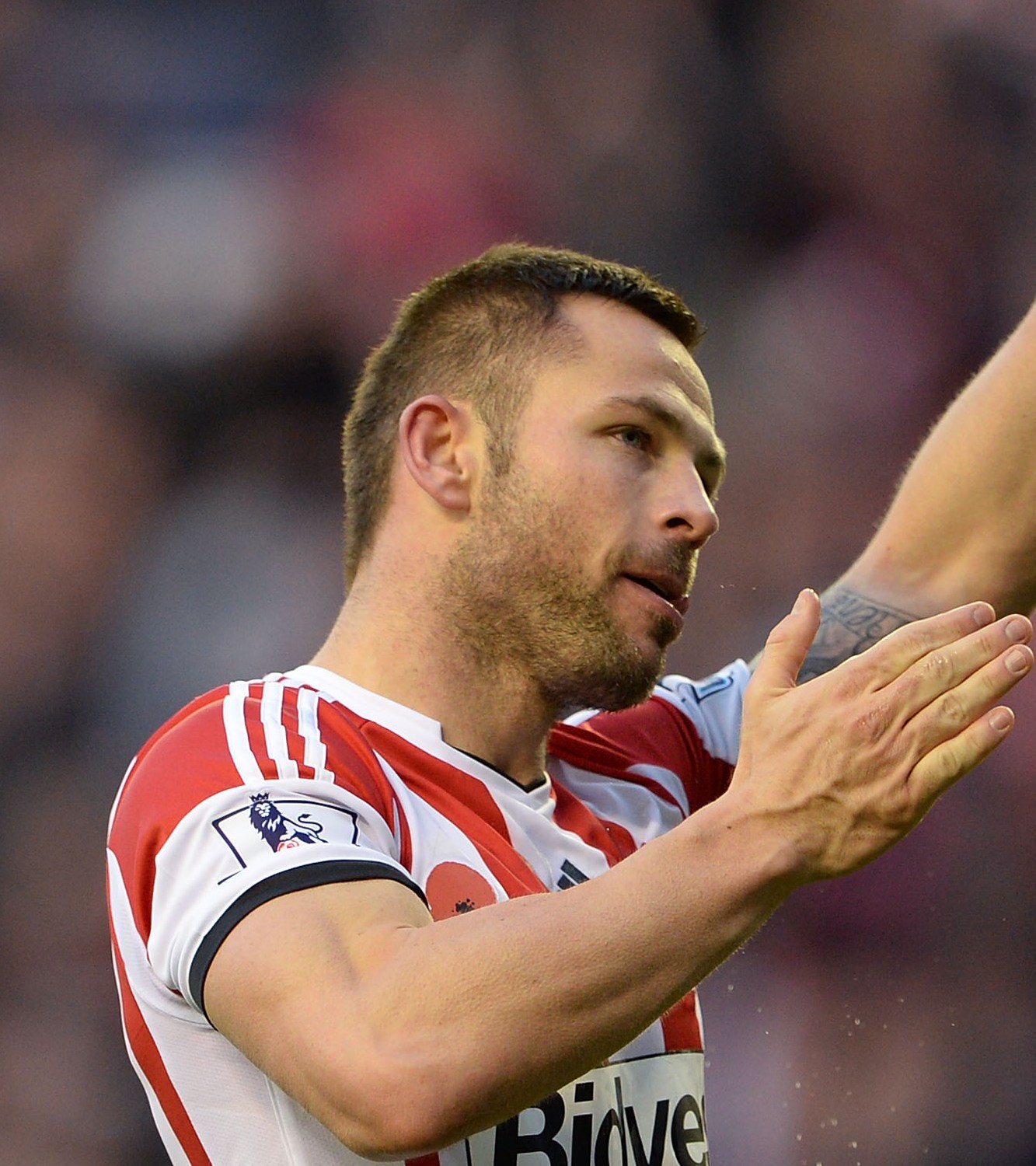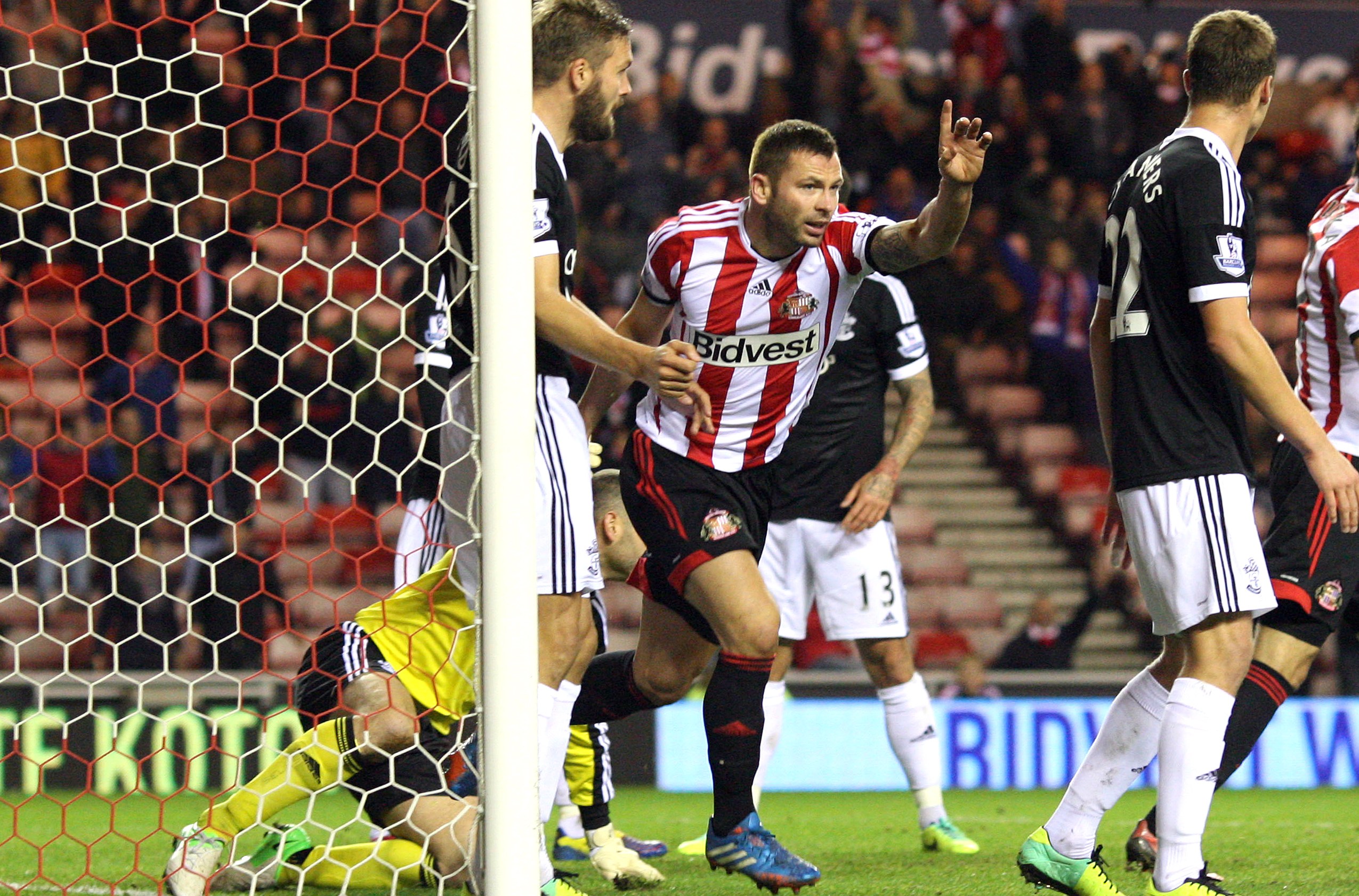Bardsley’s Redemption: A Modern-Day Parable of Forgiveness and Controversy in Football’s Cutthroat Arena of Loyalty and Betrayal!
Phil Bardsley’s tumultuous journey within Sunderland AFC encapsulates the volatile nature of professional football, where loyalty is often tested against public perception and managerial decisions. The narrative surrounding Bardsley is not just a tale of personal redemption; it reflects the broader themes of forgiveness, the struggle for identity within a team, and the often unforgiving scrutiny of fans and media.
Bardsley’s fall from grace began under the management of Paolo Di Canio, a figure known for his fiery temperament and controversial methods. After a series of incidents, including a notorious photograph of him lounging on a casino floor amidst piles of cash, Bardsley found himself at odds with the club’s ethos and the expectations of its supporters. His mocking remarks following Sunderland’s disheartening opening-day defeat to Fulham further alienated him from the fan base, casting doubt on his commitment and professionalism. This episode serves as a stark reminder of how quickly a player’s reputation can sour in the public eye, particularly in the age of social media, where every misstep is amplified and scrutinized.
The arrival of Gus Poyet as Sunderland’s manager marked a pivotal moment for Bardsley. Poyet, recognizing the need for stability and experience within a squad that had endured a chaotic managerial transition, made the bold decision to reintegrate Bardsley into the team. This decision, laden with risk, was not merely about footballing ability; it was a calculated gamble on the part of Poyet to restore faith in a player who had once been a vital part of Sunderland’s defensive unit.
Bardsley’s return to the squad for the Capital One Cup clash against Southampton was met with skepticism. Critics questioned whether he could rise above his tumultuous past and deliver performances that would earn back the trust of fans and teammates alike. Yet, in a moment that would redefine his season, Bardsley scored the opening goal in a hard-fought 2-1 victory, silencing his doubters and igniting a renewed sense of purpose within the team. His goal was not just a statistic; it was a declaration of his intent to reclaim his place in the hearts of Sunderland supporters, illustrating the redemptive power of sport.
Poyet’s post-match comments highlighted the significance of Bardsley’s performance. He acknowledged the risks associated with reintegrating a player who had been at the center of controversy but emphasized the importance of understanding the individual’s desire to contribute positively to the team. Poyet’s approach mirrored a broader theme in football management: the necessity of balancing discipline and understanding, particularly with players who have faced adversity. By placing trust in Bardsley, Poyet not only salvaged a player’s career but also reinforced the notion that redemption is possible in a world that often favors the quick to judge.
As the season progressed, Bardsley’s form became instrumental in Sunderland’s fight for Premier League survival. His defensive prowess and leadership on the pitch were crucial during a period of intense pressure, culminating in a memorable appearance at Wembley in the League Cup final against Manchester City. The narrative of a player once deemed a liability transforming into a key figure in a major cup final exemplifies the unpredictable nature of football, where fortunes can shift dramatically in a matter of weeks.
Bardsley’s scoring against Manchester United in the semi-final of the League Cup was a testament to his resilience and capacity for growth. It was a moment that not only showcased his technical ability but also served as a powerful reminder of the potential for personal and professional transformation. The subsequent goal against Manchester City in the league further solidified his status as a player reborn, one who had managed to navigate the treacherous waters of public opinion and emerge stronger.
The broader implications of Bardsley’s story extend beyond the confines of Sunderland AFC. It raises questions about the nature of loyalty in football, the capacity for forgiveness, and the often harsh realities faced by professional athletes in the public eye. The scrutiny that players endure can be brutal, and the line between hero and villain can blur rapidly. Bardsley’s journey illustrates how a single moment of brilliance can alter perceptions and redefine a player’s legacy.
Moreover, the dynamics between management and players are often fraught with tension, particularly when a player’s past actions come into play. Poyet’s willingness to embrace Bardsley after the fallout with Di Canio speaks to a managerial philosophy that values potential over past mistakes. It is a reminder that football, at its core, is about human beings striving for connection and understanding amid the pressures of competition.
As the narrative unfolds, it becomes clear that Bardsley’s resurgence is not merely about footballing success; it is a reflection of the complexities of human relationships within the sport. The capacity for forgiveness, the importance of second chances, and the resilience to overcome adversity are themes that resonate deeply within the context of professional football. Bardsley’s story serves as a microcosm of the broader struggles faced by athletes seeking to navigate the challenges of public life while remaining true to their identities as players and individuals.
In the end, Bardsley’s journey is a powerful testament to the idea that redemption is attainable, even in the most scrutinized arenas. His ability to rise from controversy and reclaim his place within Sunderland AFC is a narrative that will continue to inspire discussions about loyalty, forgiveness, and the transformative power of sport. The world of football, with all its complexities, remains a stage where personal stories of triumph and redemption unfold, reminding us of the human capacity for growth and change.

Following a fall-out with former manager Paolo Di Canio, Phil Bardsley’s Sunderland career looked to be in jeopardy. After being photographed lying on a casino floor swimming in money — along with publicly mocking Sunderland’s opening-day defeat to Fulham — it was difficult to see a way back for the former Manchester United defender.
However, when Gus Poyet joined was appointed after Di Canio’s brief but chaotic time in charge, the Uruguayan didn’t waste too much time in getting him involved. Bardsley returned to the squad for Sunderland’s Capital One Cup round of sixteen game against Southampton — with a helping hand from new signing Andrea Dossena, who was sent off against Hull City in the league.
On his return, Bardsley still had his doubters and naysayers, who were still quite unhappy with his comments online, leading many to question his attitude and commitment.
As it transpired, those who expressed doubts were likely cheering his name just after the hour mark of the cup game, as the right back opened the scoring after a goalmouth scramble. His goal was the first in a 2-1 win for Poyet’s side, which took them into the last eight of the competition.

After the game, the new Sunderland manager spoke of his delight at Bardsley’s performance, his importance to the team and what he could bring to the side going forward.
I am not sure if it was a risk by me to bring him back in. When I arrived, I saw how important he was for the group and how much he wanted to play in behind-closed-doors friendlies.
The situation with Andrea Dossena at the time was that he was not fully fit. I thought it was a great kind of addition to have Phil in the group. He is part of the club and if he is good enough, he will play.
I am happy for Phil. We put him in to the box for the free-kick and to put his head on things. I had to try to take a risk by putting four defenders in to the box, we had other players who could stay at the back like Jack Colback. Sometimes you have to take a risk and this time it paid off.
Bardsley’s form became a key component of Sunderland’s season. He played a key role in our Premier League survival bid and made a Wembley appearance in the League Cup final against Manchester City after scoring against Manchester United in the semi-final at Old Trafford.
In actual fact, four days later the defender would score a goal against Manchester City in the league, further reinforcing his increasing importance to the team as we won 1-0.
